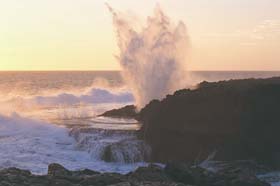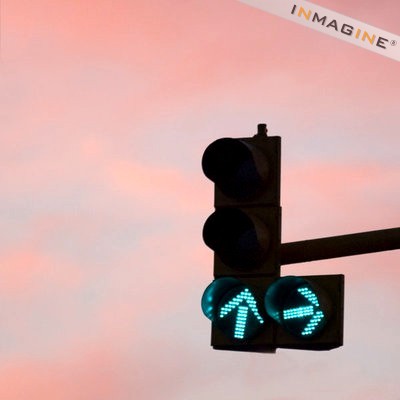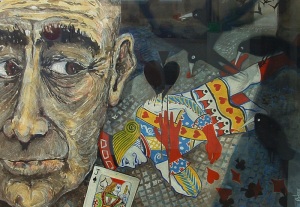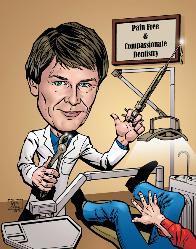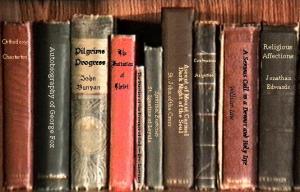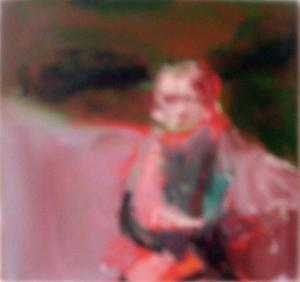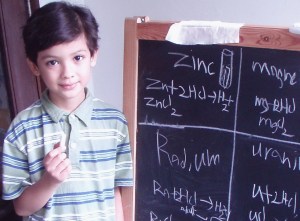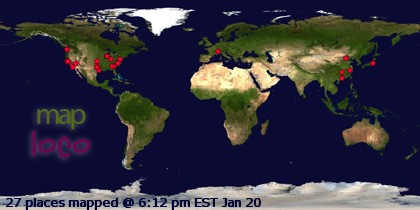 So, like a living cliche of unrequited love, I decide to run away to a distant outback town of miners, dust and gold. I say it is for work so that you won’t know it is because of you. Probably you guess anyway. You tell me I will love it there. You sound excited but I can only notice that it is the first time you mention me and love in the same sentence. A few nights before I leave – this is summer, the nights are close and there’s the ring of crickets in the air –I drive my car far into the flat, moonlit wheat fields. I watch road trains sweep past me and am desperate for something I cannot name. My heart is swimming for you; I want to run or scream or cry. Instead, I turn around and drive home. David Crosby is on the radio and he pours harmonies into my blood. I am full of the things I cannot touch: the night, the music and love. I sing along “I just want to hold you; I don’t want to hold you down.” but I know this is not true, that I really feel the opposite. Then I am gone and the summer grows between us and our one night together, a night when I drunkenly kissed your laughing face, everything so brilliant and you out of focus so clearly. Months later you write me a letter to say you have met someone. You write, “He reminds me of you” and you do it without irony or cruelty, just the heedlessness of early love. You are right about one thing though: I do love that mining town and I marry this beautiful teacher there. I hear that you marry a policeman with a sense of humour. Now the teacher and the cop are gone and the years have swept us together again on this strange promontory. You send me an email out of the blue and when I reply you write, “I’d forgotten your dry sense of humour.” Oh you and your funny men, I think. But I can’t be bitter, not really. Instead I write you a story that I know will make you laugh. Then I press ENTER. I wait.
So, like a living cliche of unrequited love, I decide to run away to a distant outback town of miners, dust and gold. I say it is for work so that you won’t know it is because of you. Probably you guess anyway. You tell me I will love it there. You sound excited but I can only notice that it is the first time you mention me and love in the same sentence. A few nights before I leave – this is summer, the nights are close and there’s the ring of crickets in the air –I drive my car far into the flat, moonlit wheat fields. I watch road trains sweep past me and am desperate for something I cannot name. My heart is swimming for you; I want to run or scream or cry. Instead, I turn around and drive home. David Crosby is on the radio and he pours harmonies into my blood. I am full of the things I cannot touch: the night, the music and love. I sing along “I just want to hold you; I don’t want to hold you down.” but I know this is not true, that I really feel the opposite. Then I am gone and the summer grows between us and our one night together, a night when I drunkenly kissed your laughing face, everything so brilliant and you out of focus so clearly. Months later you write me a letter to say you have met someone. You write, “He reminds me of you” and you do it without irony or cruelty, just the heedlessness of early love. You are right about one thing though: I do love that mining town and I marry this beautiful teacher there. I hear that you marry a policeman with a sense of humour. Now the teacher and the cop are gone and the years have swept us together again on this strange promontory. You send me an email out of the blue and when I reply you write, “I’d forgotten your dry sense of humour.” Oh you and your funny men, I think. But I can’t be bitter, not really. Instead I write you a story that I know will make you laugh. Then I press ENTER. I wait.
I’m funny, like me
Mysteries
She asked me once if I was ever aware that I was alive. This is what I told her: A long time ago we left our town about ten in the morning in an old Volkswagen to go fishing. Within a couple of hours the Kombi was rattling and winding its way between spinifex and wattles down the red dirt track that led towards the cliffs by the ocean. Soon we could we see white spray above the pockmarked rocks and when John turned off the motor the sound of the swell surging and sucking at the ledges filled the air. The three of us clambered out and it was then we could taste the salt in the warm air. There was this sign that said Beware of King Waves and a red box with a life buoy in it.
We knew about King Waves; our fathers told us how they rolled along the cliff walls behind you, treacherous and irresistible, and then rushed back into the sea taking with them the men that fished from the ledges. The Doctor who brought me into the world drowned here. In that wild country the ocean never gives back what it takes into itself.
Kim pulled out some cans of beer and we stood there looking out at the water where sea birds were diving on an invisible shoal of whitebait. The beer was cold and although we were really boys, we felt like men. We unloaded fishing gear and swags, the food and guitars.
After lunch we fished mostly in silence and the sun burnt our skin brown and the salt dried on our arms. Sometimes Kim would get another beer and we’d smoke. Later in the afternoon I made my way few hundred metres from the others to a place where I’d noticed a gap in the ledge where I could throw my line and maybe get less snags. I was wrong and I lost hooks and sinkers to the rocks below me and strained to snap the line which would flick up and whip my bare shoulders.
I was walking back towards Kim and John when it happened and it came over me without any warning and it was somehow nothing and yet it was everything at the same time. The wind had come up off the ocean and the air had become hotter and everything was melting around me: the rocks and the sea and the hills. Even my friends seemed to float like spirits in a shimmer of silver. And suddenly, there it was, that mysterious moment when you know exactly where you are and that you are where you should be and the world is your friend and the sky and the clouds and the sunlight too. And you are so happy that it is like you just came and all memory is gone and all the future washed into whiteness.
That night we sat on the rocks fishing in the darkness. Clouds had rolled in from the North West. Kim said to me, “Is that the moon up there?” I looked up to where a silver circle of light sat motionless behind the clouds. “Yep,” I said and looked away and we didn’t say anymore. About a half an hour later the clouds moved on and the stars appeared again. But – and I swear this is true – there was no moon.
That night I dreamed that a serious-faced doctor came to me with a needle and filled my veins with something like peace.
Filed under life
What the doctor told me
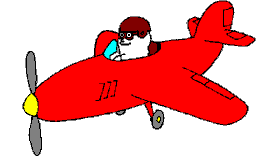 He used to assess the medical fitness of pilots for the renewal of their commercial licenses and sometimes he suspected borderline mental illness. Not of the stark raving mad type, you understand, but just the occasional tenuous link to reality that could make passengers nervous. So, one day he discovers that patient who is the most difficult kind to assess; a pilot who is almost sane. He is articulate, logical and knows his stuff but, still, the Doctor is not so sure; something about the pilot is bothering him. The airline company decides not to take the risk and the whole affair ends up in an industrial tribunal where the pilot answers all questions with knowledge and calm authority. The Doctor whispers to the company lawyer, “Ask him if there are any reasons he would divert the planned course of an aircraft.” The lawyer asks the question. The pilot says with barely a pause, “Yes, there are times when I might divert the plane’s course for any given reason.”
He used to assess the medical fitness of pilots for the renewal of their commercial licenses and sometimes he suspected borderline mental illness. Not of the stark raving mad type, you understand, but just the occasional tenuous link to reality that could make passengers nervous. So, one day he discovers that patient who is the most difficult kind to assess; a pilot who is almost sane. He is articulate, logical and knows his stuff but, still, the Doctor is not so sure; something about the pilot is bothering him. The airline company decides not to take the risk and the whole affair ends up in an industrial tribunal where the pilot answers all questions with knowledge and calm authority. The Doctor whispers to the company lawyer, “Ask him if there are any reasons he would divert the planned course of an aircraft.” The lawyer asks the question. The pilot says with barely a pause, “Yes, there are times when I might divert the plane’s course for any given reason.”
“And what reason might that be?” asks the lawyer.
“I avoid flying over church steeples as it interrupts the connection between God and the Earth.”
“Uh huh,” murmurs the lawyer, “And are there any other reasons?”
“Not really,” says the pilot, “except when I have to alter course to avoid impact with angels.”
(For Average Jane)
I saw dolphins
Today I walked alongside the river that lay leaden under a slightly bruised sky. The surface was still; even the ducks had gone. In the distance the city rose like a toothless gap in the horizon. Joggers ran past leaving a mild scent of sweat and vanity in the air. An arrogance of bike riders cruised down the road near the walking path with a simmering anger of drivers bunched behind them. I wonder at these funny little middle aged men with their faux advertising gear over their pot bellies and their skinny legs breathing their latte breaths into the Sunday morning. A couple with babies walks past despondently, their now somewhat redundant dogs leashed to the husband like a reminder of shallower love that was sufficient and is gone.
I think of you and how you loved the river that you had not seen for years until we made contact again. You flew across the country to sleep with me. In the morning I had to go to a meeting and talk sensibly to serious men. I looked at my hands differently because you had touched them and they had touched your naked body just hours before. I smelt the freshness of shirts and aftershave and found it erotic. I was in the world. You were in a train crossing a bridge. You texted me and the beep interrupted what I was saying in an air-conditioned board room. “Excuse me,” I said. I read your message: “I saw dolphins!”
Now you are back in your distant city with your distant husband. You ignore my periodic emails; you are being good. I tell myself that you will not risk answering again but maybe you tired of me like you did of him. Lovers tell such fanciful stories even when the hearer is gone.
One day my children were swimming in the river and a dolphin came close to the jetty. Everyone crowded the shoreline to see. My daughter wanted to swim out to it but then she said, “Dad, if dolphins can come this far up the river, does that mean sharks can too?” I looked at her and tried to find a way to balance truth and risk but in that moment’s pause she already realised; I saw in her eyes and faltered step that she knew something now that she could never unknow.
Today I walked home again with the memory of you and dolphins.
Filed under life
Madmen at the lights
Today at the traffic lights I watched a madman talking to himself, beating his fist against his forehead and staring with fury into a tree. I wondered what he saw there that I could not. When I came home I couldn’t help thinking of it; how I drove off lost in my angry thoughts, leaving him there with his angry visions, and both of us missing the sky.
Filed under life
Somehow we ended up talking about death
A few years ago I was having drinks with my second wife and some friends of ours, Paul and Sue Knight. It was a good period of my life. Rae and I were in love, but not in that starry eyed way that sometimes happens; more in a tentative, grateful way. It’s hard to explain now. I think we were both a bit surprised to have found any kind of love again. Anyway, I remember we were always touching each other like you do something that you are not quite sure is real.
Sue had been a friend of Rae long before I knew her. Paul worked in the Department for Regional Development; I don’t remember what Sue did. Neither of them ever talked about their jobs which was one of the reasons I liked them, even from day one. I think they’d been married for about five years by then. Rae said that Paul was full of it but she liked him for Sue’s sake.
That night he was pouring wine from South Australia into cheap glasses and soon we were pretty drunk. He was a different sort of person, Paul; always digging deep into your life, never satisfied with simple things like football or even politics. When I was sober, I found this annoying but after a few reds it was kind of fun, even though I never really let my guard down. Especially in front of Rae.
I remember there was always music on pretty loud, mostly Neil Young and Van Morrison and Wilco. There was smoke everywhere because we all smoked too much when we drank. In between the wines we sipped cold Coronas. This particular night Paul, as usual, was getting sentimental. When I went to get another beer he tried to dance with me which made Rae laugh. “Come on, man,” he said, “you know I love you” and he meant it too and he would have danced with me if I’d let him but I didn’t. Later he sat in a bean bag just looking at us and there was actually a tear in his eye. “We’ll all be friends just like this until the day we die,” he said. “Just like this even when we are old.”
And sometimes he could shock you too. During one drunken conversation I asked him about his family. “The last time I saw my sister she was giving me a head job,” he said but he said it in that same way you might say that you last saw your sister at the airport I didn’t know what to say, I just waited for a punch line that didn’t come. “She had a lot of hang-ups, you know, self esteem,” he added by way of explanation. I looked at Sue but she just lit a cigarette and said to Rae, “Pretty fucked up, huh?” I couldn’t let it go though. “Self esteem is not the point, Paul; you don’t have sex with your sister.” But even as I said this I felt myself becoming unsure. Paul looked away as if he was disappointed in me or something. It’s funny but I started to question if perhaps it was alright to have sex with your sister, that maybe it was common. That was the trouble with Paul; you had to keep your guard up or everything you believed in was up for grabs and you didn’t know how you’d wake up.
This night was happy though. I felt protected by Rae and just went with the flow. Somehow we ended up talking about death and Paul asked us what we would do if we found out we had only six months to live. I said I’d read everything from Buddha to Nietzsche, that I couldn’t die without finding meaning for living. Even as I said it I knew it sounded dumb, to spend your last days reading, but I meant it too and I would have said the same thing sober. “What would you do?” I asked Paul. He pulled his long hair behind his head and held it there with both his hands. “I know this cabin on a mountain in Canada,” he answered. “I’d go there with Sue and I’d live every minute with her and the sky and the forest until I was one with everything I love and when I died it would be no more scary than a leaf falling or a rock lying in the sun.”
Sue just looked at him and there was this silence but for Bob Dylan singing “Oh mama can this really be the end, to be stuck inside of Mobile with the Memphis blues again?” Then Rae said, and I can still hear the way she said it, “That’s beautiful, Paul” and when I looked at her I saw that her eyes were glistening. I went to hold her hand but she reached for her wine glass at the same time and she didn’t notice.
Paul said, “Well, that’s death done! Now, when was the last time you masturbated, Rae?” Everyone laughed and then Rae told him, we all told him. That’s how it was with Paul. Rae and I even told him things we hadn’t told each other and then we never spoke of them again.
After that night we didn’t go around to Paul and Sue’s house again. Rae and I split up about two years ago after she had an affair at work. She said she never meant to hurt me, had never stopped loving me. I said “What kind of love is that, like love for your brother or something?” She was really sorry though, wanted us to start again. Her counsellor told her that some marriages get stronger after an affair and she held onto that almost desperately. So did I for a while but, it’s strange, no matter how I tried, I just couldn’t get over it. I found out that you can’t intellectualise love or trust, they just cannot be willed. It’s there or it’s not and when it’s gone, it’s gone. Once you give it away, even the tiniest bit, what’s left is just not enough.
Filed under life
By the way
Without any warning, the dentist in my little town got religious indigestion; overnight he shed his tatty cloak of atheism for the snug jacket of God. The speed of the dentist’s transformation was second only to his new found zeal for the conversion of our town’s somewhat generous supply of lost souls. It was not that he had a particularly compelling theology; he did not display a style of argument that subtly blended passion and reason into an irresistible confirmation of the existence of God; nor was it that the dentist was remotely articulate. He lacked even that capacity of that persistent kind of bore to wear away the steely armour of our adolescent disbelief into at least an appearance of acquiescence. Yet, for all this, our dentist was effective in ways that no preacher had ever been. Lowering us back into his chair, he would murmur, “Open wide.” Then, as almost an afterthought, he would add, like John the Baptist with a drill, “Oh, by the way, have you been saved?”
Eventually they took our dentist away. He had started bursting into the pub and spoiling our fathers’ nights with loud admonishments on their evil ways, something they could abide in the church or the bedroom but not the bar. It was a shame though; everyone agreed that once you said you were saved, that dentist had the touch of an angel.
Tide
After John died, I started to take the books from the shelves of his study and pack them into boxes. I didn’t know him that well but it made me sad somehow to touch the things he’d left behind, to start the process of emptying the world of another life. It got me thinking about all the books I’d read in my own time and then I wondered what the point of all that reading was. The more I thought about all those novels and poems and biographies, the less I could remember about them. Only bits of plot, a character here and there and, every now and again, a line of particular beauty. That’s not much for all those milliions of words, I thought. So many thousands of dollars and hours invested in books and now the words mostly gone, the scenes long faded and only a faint impression of the pleasure of it all remaining. That’s a bit like life, I guess; so many minutes and hours and days of precious existence, the detail mostly forgotten and in the end only the sense of it all lingering. That’s all that’s left, before memory itself ceases,just the suggestion of a life, left behind like the beautiful pools of a vanishing tide.
Want
When I was still just a boy, I learned that to want is a weakness and to want too much is to give power to others. Now I know that this is the history of the world but back then it was just another hot Saturday afternoon as I pushed my bike across the bed of a sandy creek and then rode up the dirt road towards Marinko’s house. I passed the field where Marinko told us he had killed the kittens. He had been about to dash their heads against a wall, as he’d done previously, when he decided instead to put the sightless, newborn cats in a hessian bag. Then he left the bag in the middle of an empty tomato field to bake in the summer sun. Each hour he would come back and make bets on which kitten would survive the longest. He was cruel, that boy, the cruellest boy in our town.
And, one day, in the fruit-packing shed at Marinko’s, I came to want the German greatcoat. I had seen it many times before, its black leather covered in stains, the tears where white undercloth showed through. It hung in a corner of the corrugated iron shed with the smell of rotting fruit and fertiliser. On this particular day, Marinko pointed it out to me. “My Dad got it off a German during the war. It was an officer’s jacket”
“How did he get it?” I asked.
“He was a partisan in Yugoslavia,” Marinko said and then, seeing I was interested, he called to his father, “Hey, Dad, tell us where you got the jacket.” Mr Vujkovic didn’t look up from the bunch of bananas he was de-handing with a knife. He said something I didn’t understand and Marinko shrugged. “He never tells you anything. It’s true though; he was a partisan.”
Marinko’s father showed us only the top of his greying hair, head down, washing the hands of bananas and laying them in neat rows on the bench in front of him. His white singlet was covered with the stains of banana plants, his black shorts smudged with mud. He never spoke to us and only pointed towards the house when we found him in the fields and asked about Marinko.
“Can I have a closer look?” I asked. Marinko climbed onto the fruit-sorting table and unhooked the jacket with two hands. We were only thirteen and he groaned with the weight. “It’s heavy; real leather.” Marinko handed the jacket to me and I held it clumsily, unable even to hold it upright in front of me. I longed to put it on even knowing that it would not fit. Marinko seemed to know what I was thinking. “It’s too big for you,” he said as he took it back and he wasn’t able to resist smirking at me. I hated him then, not because he was right, but because I felt something shift between us that made him powerful and me weak.
Then summer came and the cicadas shrill ringing in the trees added a familiar accompaniment to the trembling landscape of greens and browns. I rode my bike past the shady rows of bananas on the Vukjovic plantation which sat on the edge of the dry river. It was early afternoon and the fallow fields seemed to sway in the heat. I leaned my bike up against the wall of the fruit-packing shed and squinted into the darkness. The Vukjovic home, a small rectangle of fibro and tin, adjoined the shed with a single door and I heard this open.
Mr Vukjovic came out, paused for a moment and stared at me. “Is Marinko home?” I asked. He said nothing and moved toward bunches of bananas lying on their backs on a rusting trailer. I stepped into the shade and gradually my eyes adjusted to the light. I asked him again, “Is Marinko here?” Mr Vukjovic lifted a bunch of bananas onto his shoulders and then onto the bench. He picked up a short knife stained black with banana juice. “No,” he said. His voice was thick and guttural. We had had this conversation before and it never went any further. Each time I would get on my bike and ride away. But now my eyes briefly sought out the German greatcoat. Mirenko’s father noticed this and he put down the knife and handed the jacket to me.
I stood there holding it and feeling him watch me. “Germans,” he said. “We come out of the hills like this.” He made the sound of a machine gun and waved the imaginary weapon backwards and forwards. Then he laughed and I smiled back still holding the coat uncertainly. “Did you kill this German,” I asked.
Mr Vukjovic dropped his arms and his smile disappeared. “He was dead already,” he said and then he added, “But I made sure anyway,” He lifted his head and dashed an upraised thumb across the white stubble of his neck. Then he looked down at me with his arms by his side.
I heard him say something under his breath. When I didn’t reply he appeared to grow angry. “Do you want the jacket, boy?” I nodded. “Then you take the jacket,” he said abruptly. He motioned me away with his arm.
“Can I really?” I asked.
“You take it. I won’t shoot you.” But he didn’t smile when he said this.
“Thanks,” I said quietly, feeling confused like I sometimes did when my Grandfather made a joke that was like some kind of trap.
I walked towards my bike, the coat dragging on the ground. Marinko’s father followed me and stood by me as I tried hopelessly to fold the greatcoat, tried to place it on my handlebars knowing that it would not stay there. It fell and I picked it up, refolding it into a clumsy parcel. Somehow I managed to gain my seat and went a few metres before falling sidewards against the packing shed wall and then the hard earth.
Marinko’s father stood beside me and said nothing as I rubbed a scratch on my leg made by the bike pedal. “You put the coat on,” he said and pulled me to my feet with one arm. I said nothing now as he jerked the army jacket roughly over my arms and shoulders like a cape. The weight made me hunch forward. Mr Vukjovic picked up my bike, put an arm around my waist and lifted me onto the seat. “Go,” he said. “Go.” But part of the jacket had fallen over the back wheel making the pedals harder to push. I felt the man’s hand on my shoulder and knew that this was all that kept me balanced. Then the front wheel twisted in the sand and I fell. Again Mirenko’s father pulled me to my feet, placed me on the seat and pushed me forward.
When I fell once more, he turned me over roughly on the ground and pulled the greatcoat from my back. Then he walked into the shed and I could hear him dropping the hands of bananas into the water of the cleaning trough. I was crying silently, pushing my bike to the harder edge of the dirt track that led away from the house. I felt the sun’s heat on my neck; saw that I was covered in dust and that my tears had made strange patterns on my arms where I’d wiped my eyes.
A few weeks later I waited for an excuse, some small provocation, and then, without warning, I punched Marinko Vukjovic as hard as I could in the face. Blood spurted from his nose and water sprang to his eyes. He was in pain but he was also hurt; he thought I was his friend. “Why?” was all he said and then with sudden anger, he screamed at me “Why, you little bastard?” Other boys pulled us apart but I had finished. I walked away, my hands in my pockets to stop them from shaking. I never hit any one again in my life and I learned not to want things.
In which I discover I have sired a prodigy and then am cruelly disabused of same
Early in parenthood, each of us has the secret and smug suspicion that our child is, in fact, a prodigy. This seemed to be confirmed for me one day as I was snapped out of my driving reverie by my 4 year old daughter’s voice from the backseat of the car. “Dad, will you tell J. that he doesn’t know everything.” I turn briefly to her six year old brother and say, as instructed, “J., no one knows everything” and swallow the impulse to add, “With the possible exception of your mother, of course.”
There is silence for a while as the two of them ponder this gem of fatherly wisdom. A truce descends and, then, almost as if to test my sage hypothesis, my daughter asks, “OK, J., if you know everything, who was the first president of the world?” This should be good, I think. There is hardly a pause and my son, only half way through his first year of school, replies with eminent confidence, “George Washington.” My daughter, perhaps feeling the first limitations of a public kindergarten education asks me, “Is he right, Dad?” And I have to admit that he is mostly right even if the USA is not quite the whole world yet. And there it is: that uniquely parenthood moment, that sly suggestion that maybe one of our offspring has dipped into the deeper end of the gene pool than we were aware existed.
I put my shoulders back and start to consider which university J. will enrol in. My illusions, however, soon evaporate as the backseat conversation reaches its intellectual zenith. After a pause, my daughter, feeling that she should take advantage of the now confirmed genius beside her, asks, “J. are there any animals that can fly?” Once again, the answer is unequivocal and instantaneous. “No.”
J.’s sister’s next question is tinged with anxiety, “But what about Father Christmas’s reindeers?”
The air becomes palpable with uncertainty. Then my son in a single moment relegates himself back to the realm of sandpit mortal.
“Oh, yeah,” he says, “I forgot about them.”

